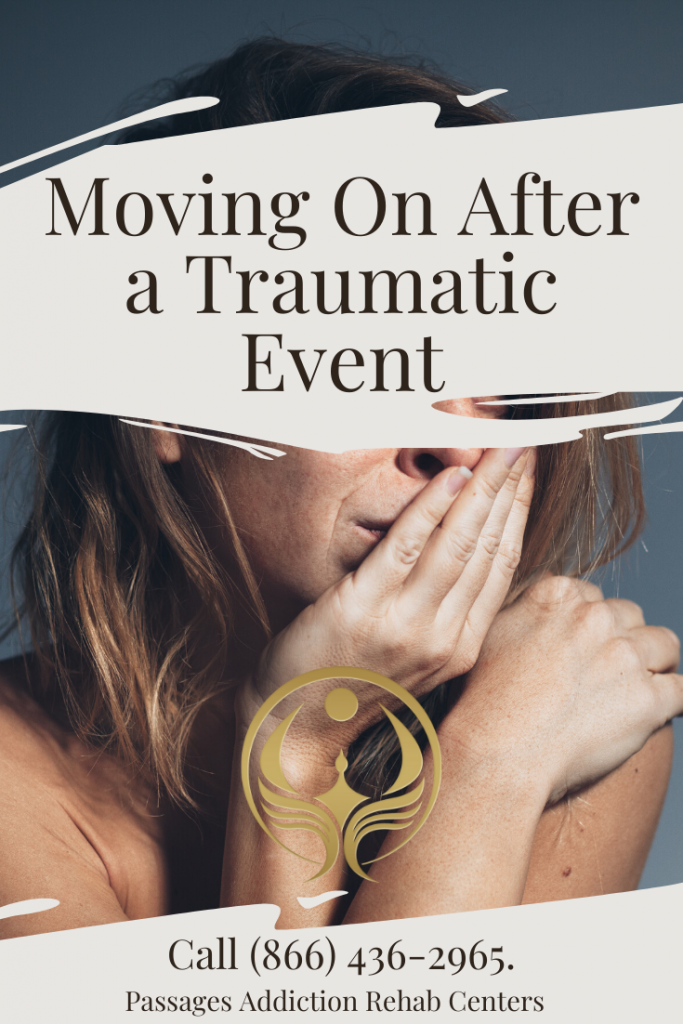By Jennifer McDougall
“When a problem or a difficult situation arises, say to yourself, as if you already believe it: “This is for my benefit.”
― Chris Prentiss, Be Who You Want, Have What You Want: Change Your Thinking, Change Your Life
Moving on after something traumatic can feel like an impossible task, but it’s not. It’s not impossible to move forward after something traumatic has happened. The event that has left you feeling confused, broken, hurt, abandoned, abused, silenced, or sickened, happened for a reason. It happened to teach you something. It happened so that you could be given the tools you need to help other people. It happened so that you could be given the strength you needed to move forward in your life with more courage than ever before. This traumatic event was not a downfall or a setback. It needed to happen to teach you something good and valuable. This event was meant for you and part of your destiny.
The concept that something good can come from a traumatic event may sound new to you. The idea that something like a job loss, a cancer diagnosis, death in the family, a breakup, witnessing or experiencing any violence or abuse, a car accident, a miscarriage, or even rape could be turned around and looked at as something you can benefit from might sound ridiculous, but after stepping back for a minute and finding something positive you can take away from that experience or situation you may see that your perspective of the traumatic event changes.
Looking for a lesson and a blessing in every situation will help keep your outlook on life and its events a more positive experience. Sure, something like being raped or diagnosed with cancer is not something anyone wants or is anywhere close to pleasant, but there is always something positive to take away from everything that happens in our life.
How you move forward after a traumatic event is how you begin to heal. Speaking with a therapist and talking about what you are feeling will help you process the events leading up to, during, and after the event. It’s essential to let out the emotions you are feeling so your therapist can help you work through the trauma and sort out the thoughts tangled up in your mind to release the pain built up and move forward healthily.
What happens to many people is that they hold on to the pain. They cope with the use of drugs and alcohol to numb that pain, and they wait a while before telling anyone what has happened to them. Some people wait many years to open up and finally talk to a therapist or a trusted confidant. The problem with waiting is that you prolong the healing process. The longer you hold on to the pain caused by the traumatic event, destruction tends to seep into your daily life, causing you to make poor decisions, get caught up in your head, and be distracted.
Substance abuse issues frequently stem from a person’s inability or unwillingness to get the help they need after a traumatic event. It’s important to talk to a close friend or family member immediately after something traumatic has happened to you. However, it’s even more critical to seek professional help to learn healthy coping mechanisms and not let this thing that has occurred become a weight in your life that holds you back from being the best possible version of yourself.
Also, read HEALING FROM TRAUMA AT PASSAGES ADDICTION TREATMENT CENTERS.

How to Contact Passages Addiction Treatment Centers:
Call Passages Addiction Treatment Centers today if you or a loved one is battling an addiction to drugs and alcohol. Our admissions department is available 24/7 and can be reached directly by calling our toll-free number at (888) 397-0112. We look forward to speaking with you soon.
Passages, Where Addiction Ends and Life Begins™
Follow us on Facebook, Twitter, Instagram, and Pinterest!


